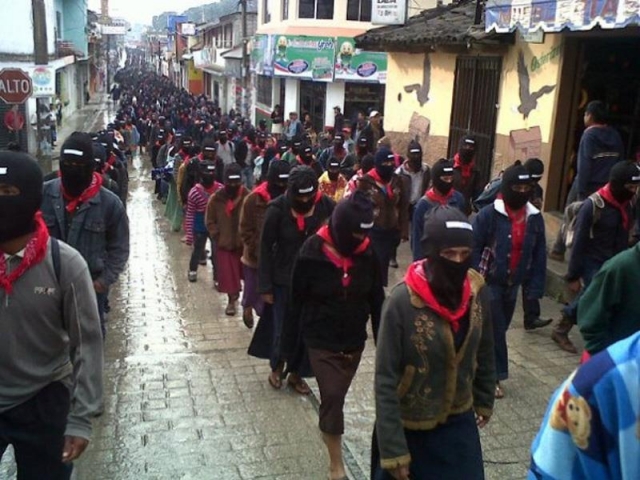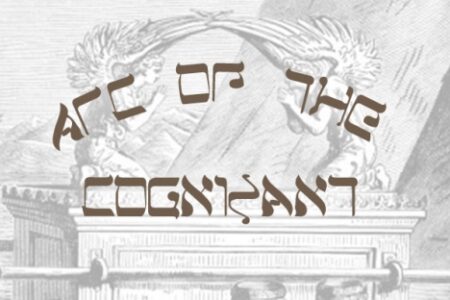COMMENT: 2013—Thirteen Baktun and the Ya Basta Crux
Historians, archaeologists, and palaeontologists focus on pivotal moments around which separate eras seem to hinge. It is no different in other disciplines as ecologists define community edges and philosophers erect words around meaning. Meanwhile, down on Planet Earth, climbers, bikers, skiers, and boaters flow over their challenges, sharply aware of the closely defined motions needed to navigate each crux.
Fundamentally, the lines are imagined, but practically, they’re real.
I think history will look back on 2012 and 2013 and see that humanity has, just now, crossed a critical threshold in time, perhaps the most critical in the postmodern era. This year, more than ever before, we have reached a crux: we must see right for right and wrong for wrong, and then choose between action and apathy.
Although muted in the western media, perhaps the most symbolic event of 2012 was the 40,000 strong “March of Silent Dignity” by the Zapatistas, descendants of ancient Maya whose calendar was widely misinterpreted to foretell the end of the world.
The Mayans’ profound, silent unity on the Winter Solstice march told a different story, one that supported their demand for rights stolen centuries ago, but also much more: ‘This is not the end,’ their feet said, ‘it is a new beginning.’
Two hundred years ago, in 1813, Canada faced the peak of America’s incursion across a border that the war would ultimately solidify, the world’s “longest undefended” border, it is said—10,000 pound Predator-B drones excepted.
But the war that inspired the Star Spangled Banner did usher in a new peace—a strong tie between the two countries that continues today, our histories blended together.
One hundred and fifty years ago, in 1863, the same year that US President Abraham Lincoln proclaimed an end to slavery, he stood on horribly bloodied Gettysburg soil and told his divided country to reaffirm their allegiance “to the proposition that all men are created equal,” and to find in the deaths of so many compatriots “a new birth of freedom,” a new commitment to “government of the people, by the people, for the people.”
A century ago, in 1913, vainglorious European leaders struck their penultimate peacock poses before, the following year, stabbing the hearts, tearing the limbs, and gassing the lungs of millions. A League of Nations (enthusiastically promoted by US President Woodrow Wilson) rose and fell, [kaboom!], and a United Nations rose and deflated—punctured and psssing hot air, as it were, by the hypocritical agendas (and arms deals, coup d’états, and more) pushed by at least one if not three or all five of the permanent bouncers to the security club.
But we are learning, slowly learning. Symbolically, at least, humans are internationally bound by the Charter of Human Rights, a glimmer of hope, a global backbone that our colourful, complicated, and diverse localities must flesh out if the body of humanity is to happily breath, eat, and drink the Earth for generations to come.
A peaceful future depends on respected rights.
Fifty years ago, the Reverend Martin Luther King, Jr. had a dream that finally convinced the majority of Americans that the Fathers of America had ordained life, liberty, and the pursuit of happiness to be the unalienable rights of “all men”—of all people. The previous interpretation, one clung to by segregationists, was that “men” meant “male landowners”—or, at a stretch, white people. It is now clear (to most of us) that this was morally wrong, regardless of whether the segregationists correctly reflected the attitudes of some of the slave owners who signed the Constitution.
President John F. Kennedy was killed before his bill went through a congressional committee chaired by segregationist Howard Smith, who fought it tooth and nail. When President Lyndon Johnson signed the Civil Rights Act into law in 1964, he remarked that, for the Democrats, he’d lost the South for a generation. We’re going on half a century that the Democrats have lost the South, but the politics are irrelevant: King’s dream has grown in people’s minds, in American minds, in Canadian minds, and far beyond; very slowly, the dream is being realized.
Fifty years after civil rights burst into America’s majority consciousness, in 2013, we will see that global rights—or at least the dream of them—will finally explode onto America’s majority. And that’s important, since the USA still is, more or less, the centre of our human universe.
Global rights, like all rights, have their corollary in responsibilities. Global rights will demand an understanding of cause and effect, for example from a century of rapid American industrialism and profligate pilfering to Hurricane Sandy hammering Ground Zero soon after vast wastelands of GMO corn withered from heat and thirst.
In 2013, more and more Americans and Canadians will feel rising within them a deeply personal but widely shared discontent with the direction we’re headed. Like the Zapatistas, we will feel it in our bones: Ya Basta! Enough is enough! We must see right from wrong (without splashing about in the muddy in-between) and then act.
In Canada, at the very least that means no more political apathy. Time ran out in 2012 when our government chose prisons over education, fat cats over thinning scientists, and national security over ecological resilience. (Do expensive jets make you feel more secure?)
In 2012, opposition parties bickered over colour and brand instead of how to work together towards proportional representation so they can go back to bickering over colour and brand without being whipped by an autocrat elected by a minority.
More broadly in 2013, Canadians have a stark choice: we either take responsibility for ourselves and our planet, or we may as well set out folding chairs to watch the fireworks. Bring your sou’wester: crisis after crisis will billow in turbulent updrafts on the horizon, filling thunderheads whose anvils are just now spreading and crackling with tension.
In BC, 2013 means we need to ask basic questions about what we really need, to think about how we can get more happiness from more community-based resources—be it energy, education, or food—with fewer imports and less transportation. We need to demand our right to protect irreplaceable natural treasures from irresponsible corporate ventures. And if we’re not heard, like the Zapatistas, we’ll know to save our breath and march more swiftly instead.
In the Kootenays—and, for me, in Rossland—2013 means our small towns need to be more open than ever before to new approaches. We’re only small communities, but that means we have the flexibility to make important changes quickly, much more quickly than megalopolises like Greater Vancouver. Rather than looking around sheepishly cueing ourselves by ‘normal’ and ‘average’, we have the opportunity to take the lead with meaningful actions.
To toast 2013, I can’t beat Subcomandante Marcos’ brief communiqué that stood alone among 40,000 silent marchers as they marked the end of a 144,000-day cycle and the beginning of 13 Baktun:
Did You Hear?
That is the sound of your world falling apart.
It is the sound of our resurgence.
The day that was the day, was night.
And night will be the day that will be the day.
Democracy! Liberty! Justice!























Comments